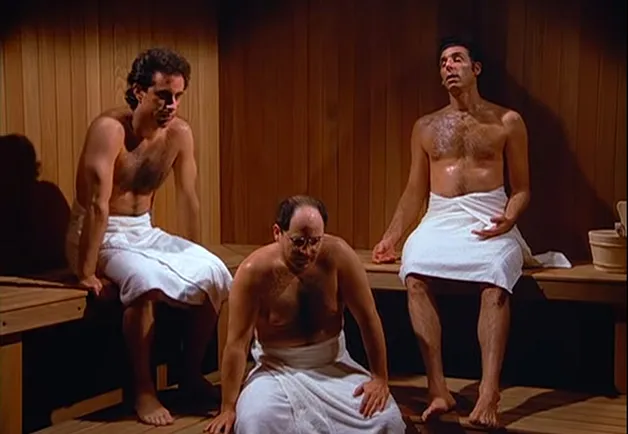As we go through life, our mental sharpness can sometimes slip to the backburner. We’re caught up in the daily grind, worried about work, family, or whatever other responsibility weighs us down. But what about our brain? Most people don’t give it the care and attention it deserves. After all, a healthy mind is just as important as a healthy body, if not more. I’ve realized this more and more over the years, especially as I push myself harder— in business, relationships, or my own personal growth. It’s where brain exercises come up.
When I started noticing mental fog and difficulty concentrating, I realized I needed to change something. I wasn’t getting any younger, and while physical fitness was already a priority, I hadn’t really considered that my mental fitness needed just as much attention. So, I started looking into brain exercises—simple things that could be done every day to strengthen memory and cognition. It didn’t take long to notice improvements, and trust me, these changes made a huge difference.
In this article, I’m going to share five brain exercises that have genuinely worked for me. If you’re ready to give your brain the workout it deserves, here’s where to start.

1. Mindful Meditation
When I first heard about mindful meditation, I rolled my eyes. It seemed like a bunch of mumbo-jumbo. Sitting in silence and breathing deeply? How could that possibly improve my memory and cognition? But over time, I’ve come to appreciate how powerful it can be.
Mindfulness, at its core, is about focusing on the present moment. It trains the brain to clear out the noise—the constant chatter of our minds—and settle into the here and now. And here’s the thing: when we’re stressed or scattered, our ability to focus and retain information drops. I used to struggle with remembering things, whether it was simple stuff like where I put my keys or more important tasks at work. But after a few weeks of committing to just 10 minutes of meditation a day, I began to see a noticeable improvement.
I remember one morning, I had a big meeting. The night before, I was feeling anxious, running through every possible outcome in my mind. I sat down for a 10-minute meditation before heading into the office. I focused on my breath, cleared my head, and let everything else fade away. The result? I went into that meeting calm, collected, and sharp, with a clear focus on the discussion at hand. My mind felt alive, not scattered. That’s the power of mindfulness.
To get started, I recommend focusing on your breath for just 5–10 minutes a day. You can use a simple guided meditation app or even just sit quietly in a comfortable space. Over time, it’s one of the best brain exercises to stay focused, which improves memory, reduces stress, and sharpens overall cognitive function.
2. Memory Palaces (Method of Loci)
This one was a game-changer for me, and I’m not exaggerating. I’m not naturally great at remembering names or facts, but the memory palace technique changed that. It’s a strategy that’s been around for centuries, and I’ve found it incredibly effective.
Here’s how it works: you create a vivid mental image of a familiar location—a house, for example—and then mentally place pieces of information you want to remember in different rooms or locations within that house. When you need to recall that information, you mentally “walk” through the house and retrieve each piece.
I first used this technique when I had to memorize a long list of facts for a presentation I was giving. I was nervous, and I didn’t want to mess up. So, I decided to give the memory palace a try. I picked my childhood home, a place I could visualize easily, and placed different pieces of information in specific rooms. In the kitchen, I imagined a big chart with data, in the living room, I placed key points for my introduction, and in the hallway, I scattered some of the more technical details.
When it came time for the presentation, I didn’t have a single moment where I forgot my points. I was able to “walk” through the memory palace in my mind and recall everything perfectly.
To create your own memory palace, pick a place that’s familiar to you, such as your home or a route you walk often. Visualize it in as much detail as possible, then assign each piece of information to a specific location within that space. It may take a little practice, but once you get the hang of it, this technique is incredible for improving memory retention.

3. Brain-Training Games and Puzzles
This one is probably the easiest to incorporate into your daily routine. I’ve been hooked on brain games for a while now—whether it’s a crossword puzzle in the morning, Sudoku before bed, or using an app to challenge my memory. These exercises don’t just keep your brain entertained; they actually help improve cognitive abilities over time.
At first, I didn’t think games like these would make a difference. But after a few weeks of regular engagement, I noticed my focus sharpened. I was quicker at solving problems, more accurate at recalling details, and I felt more mentally agile.
One of my favorite ways to train my brain is through apps like Lumosity or Elevate. They offer games that target various areas of cognitive function, from memory and attention to problem-solving and speed. I use them every morning as part of my routine. They’re short, fun, and keep me on my toes.
But it’s not just about apps. Classic puzzles like crosswords or jigsaw puzzles also work wonders. I love doing a crossword during my morning coffee. It’s a simple way to engage my mind first thing and get the blood flowing to my brain. Plus, there’s a real sense of accomplishment when you finish a puzzle.
If you’re looking for a starting point, try incorporating a few minutes of brain games into your daily routine. Pick something fun but challenging, and watch as your mental sharpness improves.
4. Physical Exercise
I’ll be honest: I didn’t always make the connection between physical exercise and mental fitness. I thought exercise was just about staying in shape. But over time, I learned that staying physically active has a direct impact on your brain’s health.
When you work out, you increase blood flow to the brain, which improves memory and cognition. Exercise also triggers the release of chemicals like endorphins, which make you feel good and reduce stress—something that I learned the hard way. There was a time when I was feeling mentally burned out, and a friend suggested I try going for a run.
I hated the idea at first. I’d never been a big runner. But I went for a jog around my neighborhood anyway. After about 15 minutes, something strange happened: my mind started to clear. I wasn’t thinking about all the stress and chaos I had been dealing with. Instead, I felt focused and energized. That run was the start of my new commitment to physical exercise.
Now, I make it a point to get some form of exercise every day. Whether it’s going for a run, hitting the gym, or doing yoga, I always feel better mentally when I’ve worked out. If you’re not already working out regularly, I recommend starting slow—walk, jog, or do whatever feels right for you. Over time, you’ll see the mental benefits.

5. Learning New Skills or Hobbies
This is probably the most underrated brain exercise of all. I’ve found that constantly learning new things helps to keep my mind sharp. When you learn something new, whether it’s a skill or a hobby, you create new neural connections, which improves brain function and cognitive flexibility.
A few years ago, I decided to learn how to play the guitar. I didn’t know the first thing about music, but I was determined to push myself. At first, my fingers hurt, my brain couldn’t remember the chords, and I thought about quitting every other day. But slowly, I started improving. I could play simple songs, my coordination improved, and my confidence grew.
That experience taught me an important lesson: when we push ourselves to learn, our brain adapts. We grow mentally, even when we’re struggling. If you’re looking for a challenge, pick up a new hobby. Learn a language, take up a musical instrument, or try something completely new. You’ll be amazed at how much it strengthens your mind.
These five brain exercises have worked wonders for me over the years. Whether it’s mindful meditation, using a memory palace, solving puzzles, staying active, or learning new skills, each of these practices has helped sharpen my mind and improve my cognitive function.
The key to success is consistency. Start small, incorporate these exercises into your routine, and stick with them. It’s not about overnight results—it’s about gradual improvement. Trust me, you’ll notice the difference.
So, what are you waiting for? Start working on your brain, and watch as your memory, focus, and cognition improve day by day.



